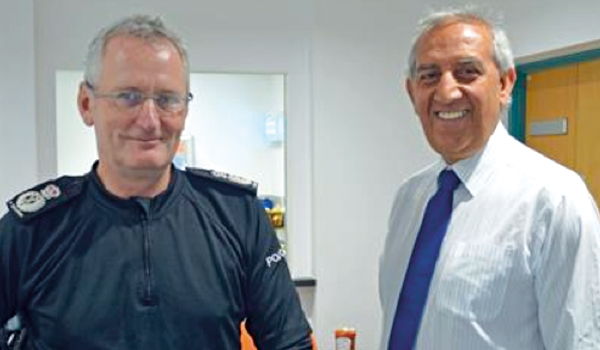STL helps West Midlands Police go live with electronic case files
Earlier this year, West Midlands Police (WMP) was the second UK police force to successfully implement a two-way interface (TWIF) with the Crown Prosecution Services (CPS) case management system, supporting the sharing of electronic case files.

Earlier this year, West Midlands Police (WMP) was the second UK police force to successfully implement a two-way interface (TWIF) with the Crown Prosecution Services (CPS) case management system, supporting the sharing of electronic case files.
The TWIF between the WMP and CPS case management systems went live three months ahead of the CPS interim target of April 2012 and its implementation had a significant training implication for the force.
Three-quarters of the force some 5,000-6,000 officers and staff had to be trained on different aspects of the system before it went live. It wasnt a straightforward training exercise as those employees focused on case file preparation had distinct training requirements compared to officers in the field. All of them needed to be competent and confident in using the system prior to its go live date.
Inspector Deb Valentine, project manager, Community Justice and Custody at WMP, explained the challenge WMP faced: WMPs training team started the groundwork to prepare for the implementation with case preparation system training back in 2008, but as this was such a new concept they were effectively being asked to design an unknown training programme.
With so many people to be trained in 2011, in so many different elements of TWIF, at times it was like trying to eat the proverbial elephant.
The first phase of case preparation system training commenced as a four-hour course which everyone did whether they needed all the elements or not. The major lesson learnt was that the training had to be broken into components, so six modules of training were then developed as an e-learning package that totalled 2.5 hours of training. While everyone could do the training at their own pace, some struggled to find the time around their workload and complained.
Training challenge
A few months before go-live, the projects training challenges were exacerbated by cutbacks in the training department, whereby a large number of trainers had left the force.
STL Technologies sent a video that its training team had developed which outlined the basics of TWIF and demonstrated how the system could be used.
Insp Valentine explained: In five minutes 58 seconds, the video explained what 2.5 hours of training did. While e-learning offers an in-depth view, STLs video gave officers a visual approach and physically showed the process that the e-learning programme was referring to by having a mouse move around the screen. It was absolutely brilliant and the training department think it is a fantastic complement to the e-learning programme.
WMPs TWIF e-learning programme was mandatory; only once the relevant modules were completed, were staff accredited and authorised to use the TWIF system.
Insp Valentine said: We have so many different people using the system and while most people need to complete just one or two modules to carry out their job, approximately a third of the force needed to complete all six modules.
STLs video highlights what officers need to do and feedback shows they are also used as a 24/7 point of reference when the training department isnt available its been invaluable for officers on shifts in the small hours of the morning. If you are stuck at 3am and cant quite remember whats next in the process, within 45 seconds you can have a refresh and the beauty of the video is that you can simply fast-forward through to the section you need to watch.
As well as complementing and supplementing WMPs e-learning programme, the video has eased pressure on the helpdesk team. Both the video and the e-learning packages are available on the TWIF intranet pages at WMP.
Insp Valentine concluded: In 99 per cent of cases, officers go to STLs training video first, as it is quick and easy. One of the hardest things about TWIF was getting people to use it. If there were any objections that people didnt understand the process then we pointed them to th



